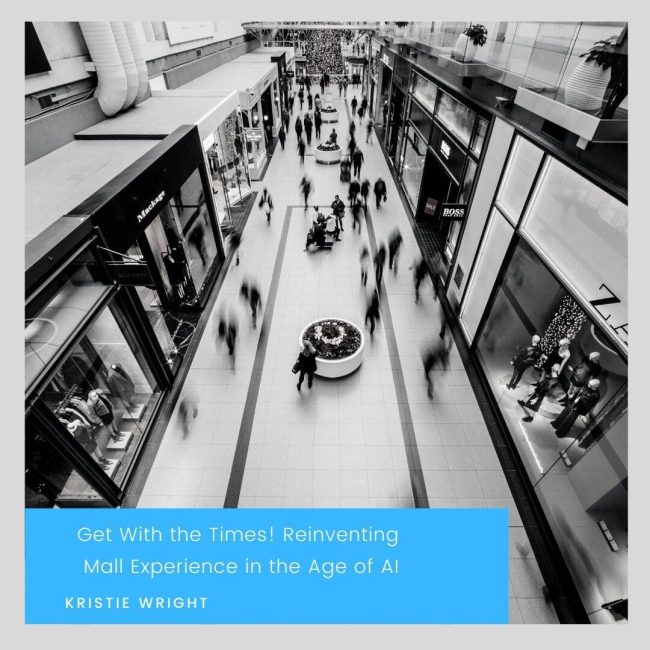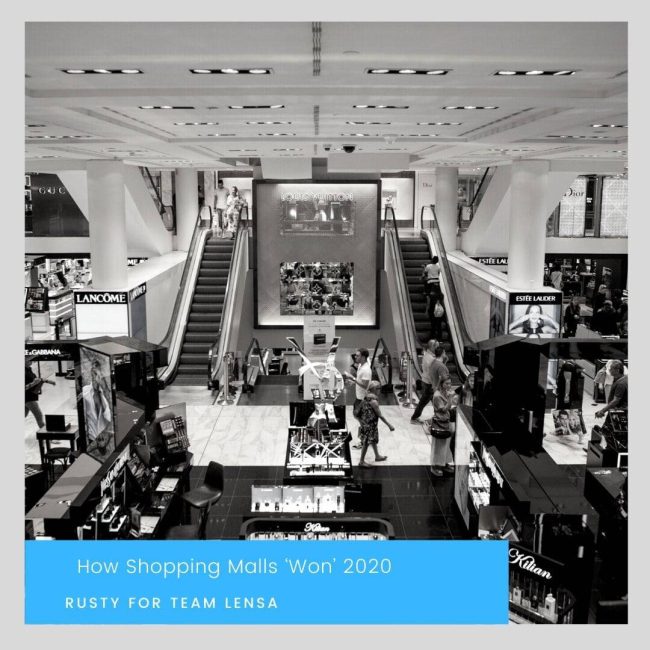The traditional retail mall experience is being dramatically changed by AI technology. Here’s how malls are using AI to engage customers like never before.
Billions of people around the world visit malls every month. This clearly demonstrates how integral malls have become to the retail sector. Plus, it illustrates the huge potential of data-powered insights waiting for application to innovations in the industry.
Modern malls can use AI, machine learning, and big data to reduce their operational costs, drive consumer engagement, explore new revenue streams, and enable tenants to increase their productivity rates. This all sounds promising—but COVID-19 has thrown a spanner in the works, and the pandemic has ushered in a new era. Now, an estimated 25% of US malls could be closed for business in the next five years.
What’s new with mall experience?
Businesses’ Motivations for Change
The global pandemic has given asset management and mall operators a clear idea of how tech-fueled innovations, preferences of younger generations, and the advent of eCommerce is quickly impacting the life cycles of traditional malls. These factors may present challenges, but they also give companies a chance to transform old malls into something new and better equipped to serve modern shoppers’ needs.
Commercial leaders are being forced to re-imagine technological investments that enable business strategies to remain viable in the face of the ‘new normal.’ Many are hesitant to embark on such futuristic endeavors, primarily due to fears of failure and a lack of internal support. But an increasingly tech-reliant world is likely to change that in the near future.
Adapting to the online world has already been a monumental task for the retail industry. Now, another exciting challenge lies on the horizon. Artificial intelligence will once again change the way consumers shop, and will redefine the classic mall experience in a number of key ways. Retailers will need to enact major changes in their thinking patterns and sales strategies if they want to remain relevant in the age of AI.
The Future of Predictable Shopping
The future of shopping will consist of two core tenets: traditional shopping, and transactional purchases. Futuristic AI bots will be able to divert and outsource the kind of shopping that doesn’t interest any given consumer.
Shoppers will no longer need to spend time on predictable and repetitive purchases like bread, milk, laundry detergent, and kitchen staples. Intelligent bots will be able to perform this kind of transactional buying on their behalf once they have gathered enough data on these customers.
While bots and AI assistants will carry out predictable purchases, retailers will need to think realistically about which of their products automation will purchase. They will need to carefully consider where to focus their investments, as will mall managers.
How Malls are Harnessing AI Technology
Progressive malls are now focusing on experience and convenience—two things that Millennials and Gen Z shoppers prioritize. They’re adding value-added elements to their properties, such as farmer’s markets, spas, fitness clubs, and art studios, to recast them in a more positive, less retail-focused light.
Some malls, like Xanadu just outside of Madrid, offer family-friendly experiences that give parents opportunities to spend quality time with their kids. Modern malls will offer far more family-oriented facilities, including go-karting rinks, theme parks, ski slopes, arcades, and bowling alleys. Revenues rose 41% from 2012 to 2013 in malls that offered these amenities at the time, and this trend of growth is ongoing even until today.
Innovative malls are strategically rethinking the kinds of retail stores that their consumers will appreciate. AI and big data have provided mall managers with the information they need to pinpoint ever-changing consumer interests.
Having popular anchor tenants in optimal locations is still essential, but modern malls are emphasizing a curated combination of smaller ‘novelty’ stores as well. Kiosks, pop-ups, and showrooms all provide shoppers with an unexpected yet pleasant surprise, and encourage them to spend more time treasure hunting for new thrills.
The technological transformation of malls is allowing them to expand their relationships with customers before, during, and after their visits. They are now able to engage shoppers with compelling content, and create lasting bonds through specialized apps, sites, loyalty programs, and social media pages.
Modern malls are gathering customer data using AI, which they can use to personalize special offers, gift ideas, and other targeted forms of advertising and location-based marketing. Some malls may not be able to directly access their shoppers’ purchase data, but they can encourage them to scan their receipts with their smartphones to redeem points they can later use to buy free parking, attend events and concerts, or enjoy discount vouchers.
Others are still using facial recognition technology, beacons, and location-based mobile ads to establish strategic and repeated contact with loyal customers.
Challenges Ahead for Mall Retailers
Traditional malls as we know them may change form, but they won’t disappear altogether. However, consumers’ standards will rise as bots become capable of completing ‘boring’ purchases. Retailers and mall tenants will need to find new ways to engage their customers and keep them interested in their products—lest they downgrade to the transactional buying category.
The malls of the future and their tenants will need to create a seamless online-offline experience to appeal to consumers at every level. They will need to pinpoint those micro-moments at which shoppers dip in and out to engage and immerse them consistently.
In the near future, many shops will offer ways for their customers to interact with big brands in order to keep them enamored. Retailers will need to get creative with their store displays, implement gamification systems, and create highly interactive environments to keep up with consumers’ technological expectations. Brands like Ikea and Nike have already introduced 3D printing in their stores to meet the growing demand for personalized products.
The future of mall experience
Not every mall retailer will manage to stay afloat in the age of AI, but the innovative ones stand a good chance. Although artificial intelligence will continue to be a highly competitive industry, the new challenges of automation and bot buying should not deter retailers who are eager to succeed.
Companies will need to get a grip on global technological shifts and consumer trends. This will help them reinvent their businesses and attract the attention of increasingly discerning customers.
Ultimately, while the shopping landscape is changing, the mall isn’t going anywhere any time soon. Retailers who adapt innovatively and listen to customers’ needs and desires will be those who thrive while malls become more interactive, tech-forward, and engaging than ever before.
Optimize your shopping center strategies
It is clear that new technologies such as AI and machine learning are here to stay, and will increasingly be present in our daily lives. Shopping centers and retailers cannot be left behind in this new era of digitization, in which online commerce has gained a large share of the market.
It is time to make the most of these technologies and implement them in physical spaces to obtain data about our strategies and our customers, in order to offer a unique and satisfactory shopping experience, which in turn results in increased sales.
Flame Analytics offers you a tool capable of collecting all the data necessary to analyze what happens in your mall and draw reliable conclusions based on accurate data about your shopping center and your public.
Join the more than 70 shopping centers in Spain and Europe that already trust Flame Analytics to optimize their actions and strategies. It’s time to get the most out of your center.







